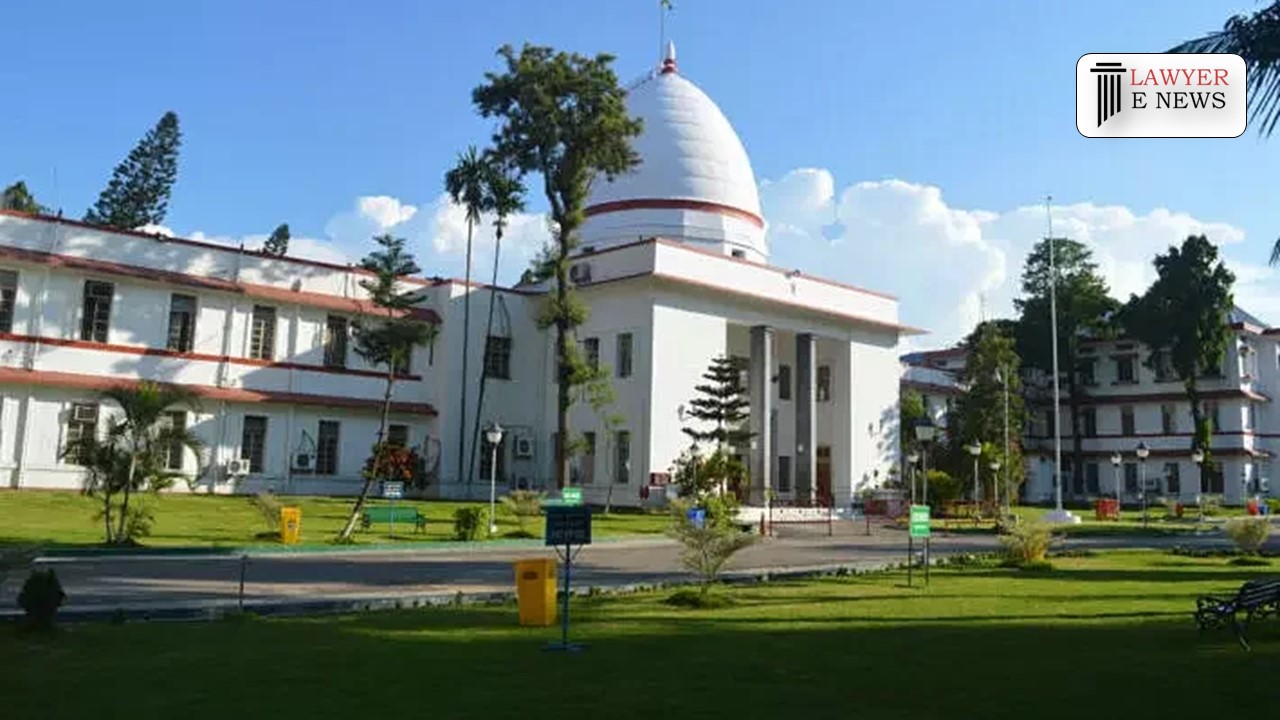-
by Admin
15 February 2026 5:35 AM



Gauhati High Court delivered a significant ruling in the case of M/S Novo Computing vs. The State of Assam and Anr (Writ Petition (Civil) No. 2055/2024). The court addressed the issue of whether a micro enterprise could challenge the terms of a tender process on the grounds of exclusion from preferential benefits. The petitioner, M/S Novo Computing, had challenged the terms set by the Assam Skill Development Mission, which required bidders to have a minimum of 10 years of existence. The court dismissed the writ petition, holding that the tender conditions were not arbitrary or unreasonable and fell within the prerogative of the tendering authority.
The petitioner, M/S Novo Computing, a registered micro enterprise under the Udyam scheme, had challenged a tender issued on March 5, 2024, by the Assam Skill Development Mission. The tender was for selecting an implementing agency for upgrading and customizing the IT and MIS systems of the Assam Skill Development Mission. The petitioner argued that as a registered micro enterprise, it was entitled to benefits under the Assam Procurement Preference Policy, 2021, and the Procurement Preferential Order, 2017. It contended that the tender conditions were arbitrary and aimed at excluding it from participation, specifically challenging the requirement of a 10-year existence for bidders.
The key legal questions revolved around the scope of judicial review in tender processes, the applicability of preferential policies for micro enterprises, and the validity of the tender’s eligibility criteria. The petitioner argued that the tender conditions violated the Assam Procurement Preference Policy, which provides benefits to micro enterprises, including concessions in earnest money deposits and a purchase preference of 25% for those quoting within 15% of the lowest bid.
Michigan Rubber (India) Ltd. v. State of Karnataka [(2012) 8 SCC 216]: Reaffirming the limited scope of judicial review in tender matters.
N.G. Projects Ltd. v. Vinod Kumar Jain [(2022) 6 SCC 127]: Stating that judicial restraint should be maintained, especially when interim orders affect the public interest.
Silppi Constructions Contractors v. Union of India [(2020) 16 SCC 489]: Emphasizing that courts should not interfere in the tender process unless there is evident arbitrariness or malafide intention.
Jagdish Mandal vs State of Orissa [(2007) 14 SCC 517]: Highlighting that judicial review is intended to prevent arbitrariness and irrationality, not to question the soundness of a decision.
The court noted that the petitioner was incorporated in 2019 and therefore did not meet the eligibility requirement of having at least 10 years of existence as stipulated in the tender. The court observed that while the petitioner’s registration as a micro enterprise under the Udyam scheme was not disputed, the primary condition was to be technically responsive according to the tender terms. The court stated:
"Incorporating clauses in the tenders are matters which are exclusively within the domain of the owner and unless such clauses are ex facie arbitrary and unreasonable or that the same has been incorporated to suit a vested interested party, the scope of interference by a Writ Court is extremely limited." [Para 25]
The court also held that the requirement of 10 years of existence for bidders was not arbitrary or unreasonable, especially considering the high-value nature of the work. The court affirmed the principle that evaluating tenders and awarding contracts are essentially commercial functions, and judicial interference should be minimal unless there is clear evidence of arbitrariness, irrationality, or favoritism.
The writ petition was dismissed, with the court concluding that the petitioner failed to meet the eligibility requirement of 10 years of existence as stipulated in the tender document. The court held that the tender terms were within the prerogative of the authority and were not arbitrary or unreasonable. Consequently, the interim order was vacated.
Date of Decision: September 17, 2024
M/S Novo Computing vs. The State of Assam and Anr
